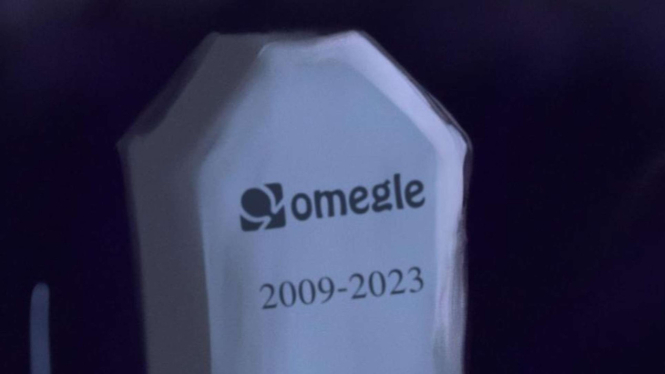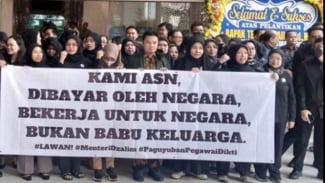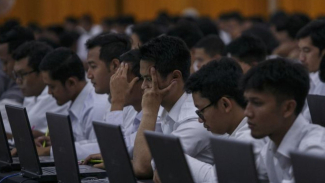Legendary Anonymous Chat Service Omegle Shuts Down After 14 Years
- Omegle
Jakarta – Omegle, a legendary video chat site that allows users to interact with strangers has been officially shut down by its founder, Leif K-Brooks after 14 years operation. This announcement was made on Wednesday.
Leif K-Brooks explained that the costs of managing the platform and combating its misuse have been overwhelming, making it financially and emotionally unsustaibale to continue operating Omegle.
"From the moment I discovered the Internet at a young age, it has been a magical place to me. Growing up in a small town, relatively isolated from the larger world, it was a revelation how much more there was to discover - how many interesting people and ideas the world had to offer," he said, as quoted Times of new site on Thursday.
In addition, the closure comes amid increasing criticism that the site endangered its users, with reports of child sexual abuse and other crime on the platform. It is also admitted by Leif K-Brooks.
Omegle
"Omegle had been misused, including to commit unspeakably heinous crimes," he remarked.
Omegle allowed users to sign up and then be launched into a ideo chat with another stranger using the site. The two could chat for as long as they wished – until they ended that conversation and embarked on a new one.
The app was launched in 2009, and became popular almost straight away. Its founder said that its popularity was a result of meeting new people being a basic human need.
The site attempted to introduce new features to stop that misuse, such as “monitored chats” that would allow moderators to try and stop criminals using the site.
But they didn't work, and the site continued to receive criticism for its lack of safety.
Now K-Brooks has said that the criticism has become too much, and Omegle will shut down. The intensity of the fight over use of the site had forced him to decide to shut it down, he said, and it will stop working straight away.
“As much as I wish circumstances were different, the stress and expense of this fight – coupled with the existing stress and expense of operating Omegle, and fighting its misuse – are simply too much," he said.
He continued: "Operating Omegle is no longer sustainable, financially nor psychologically. Frankly, I don’t want to have a heart attack in my 30s,”
Situs Omegle Tutup
- Omegle
Omegle saw a huge surge in popularity during the pandemic, as people not only flocked to the site but recorded their interactions and shared them on social media. But that popularity also brought more awareness of the problems on the site, and increased criticism of it.
K-Brooks acknowledged that criticism. But he also suggested that at least some of it was in bad faith, and that it was intended to force the site to shut down.
“In recent years, it seems like the whole world has become more ornery. Maybe that has something to do with the pandemic, or with political disagreements. Whatever the reason, people have become faster to attack, and slower to recognize each other’s shared humanity," K-brooks explained.
One aspect of this has been a constant barrage of attacks on communication services, Omegle included, based on the behavior of a malicious subset of users, he concluded.




























